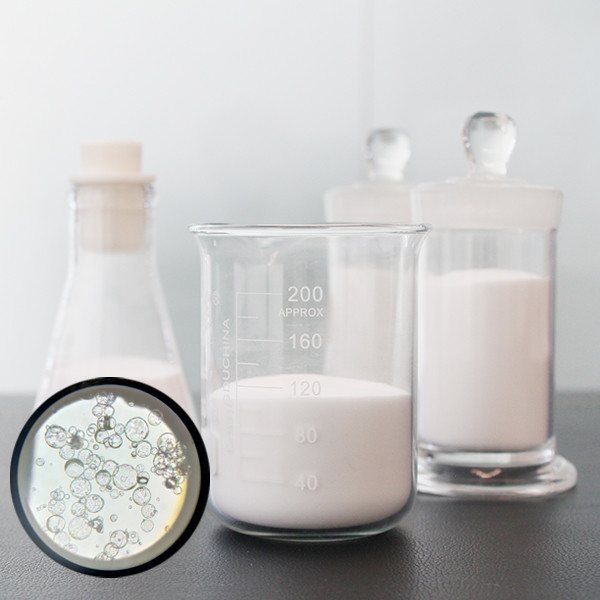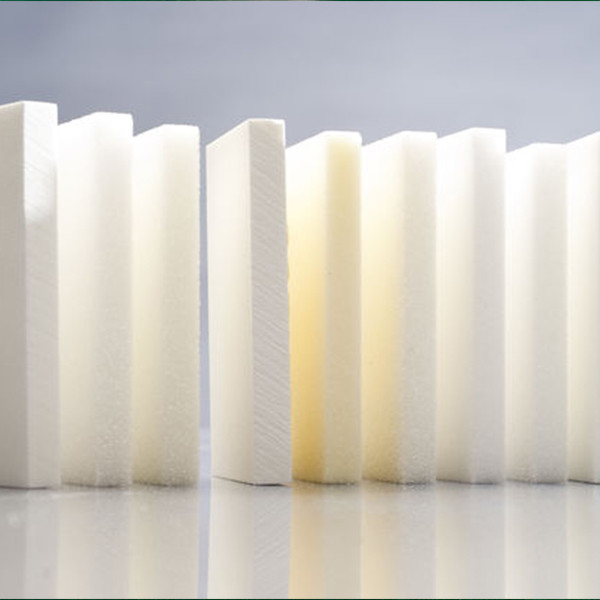HN38 Glass Microspheres - Synthetic Foam Hollow Glass Microspheres
Product Specifications
| Attribute |
Value |
| Product Name |
HN38 glass microspheres |
| Application |
Aviation Materials |
| Diameter |
20-75 µm |
| Density |
0.15-1.0 g/cm³ |
| Compressive Strength |
4000 psi |
| Chemical Composition |
SiO2, Na2O, CaO, MgO, Al2O3 |
| Color |
White or transparent |
| True Density |
0.36-0.40 |
| Bulk Density |
0.18-0.20 |
| Dielectric Constant |
1.2-2.2 (100MHZ) |
| Thermal Conductivity |
0.127 |
Technical Specifications
| Model |
True Density (g/cm³) |
Bulk Density (g/cm³) |
Compressive Strength (psi) |
Diameter (µm) |
|
|
|
|
D10 |
D50 |
D90 |
| HN38 |
0.36-0.40 |
0.18-0.20 |
4000 |
20 |
40 |
65 |
Product Description
Synthetic Foam, Hollow Glass Bubble, HN38, Polyurethane Molding, Buoyancy Material.
Hollow Glass Bubble Description
The properties of synthetic foam can be largely determined by changing production parameters such as the matrix material, filler composition, microsphere size, wall thickness, and volume ratio. These foams offer significant advantages including ease of production, reduced weight, increased rigidity, buoyancy, and cost efficiency.
Their exceptional performance characteristics include resistance to compression and hydrostatic loads, good impact and fatigue response, and excellent abrasion and chemical resistance, making them ideal for diverse construction applications.

Applications
- Marine components: Used in boat hulls, decks, and superstructures for lightweight durability
- Sports equipment: Ideal for surfboards, kayaks, and paddles requiring strength with minimal weight
- Packaging: Creates protective, lightweight materials that reduce shipping costs while safeguarding products
Product Advantages
Reduces shrinkage and enhances frame stability in composite materials
Why Choose Our HN38 Glass Microspheres?
- Specialized in hollow glass bubble manufacturing for over 20 years
- Ranked among the largest HGB manufacturers globally
- Guaranteed product quality with verifiable density, radius, and compressive strength
- Consistent product performance and reliability as our top priority
Frequently Asked Questions
Can you tell me more about packaging options for Hainuo HGBs?
We offer carton and ton bag packaging options with dimensions varying by model and density. Customers can discuss preferred packaging plans with our team in advance. Custom packaging solutions are available for specialized application requirements.
What is Hainuo Technology's background and achievements?
Founded in 2011 with research backing from government institutions, Hainuo Technology has achieved significant technological breakthroughs and is now ranked among the most competitive global manufacturers. We've received national honors including "High-Tech Enterprise" and "Outstanding Enterprise in Shanxi Province," with our products used in major national oil and ocean projects.
What precautions should be taken when unpackaging HGBs?
Unpackage in well-ventilated areas, gently remove packaging bands, and minimize vibration to reduce dust emission. Those with dust allergies should use protective eyewear and gloves.
What are the advantages of hollow glass bubbles?
They enhance thermal insulation, fluidity, stiffness, strength endurance, and chemical resistance while reducing weight in various applications.
What are common applications of hollow glass bubbles?
Widely used in aerospace, rubber, plastic, marine, and construction industries as lightweight fillers that improve performance and reduce production costs.
What is the density and size range of Hainuo HGBs?
Density ranges from 0.11-0.606 g/cm³ with sizes from 10µm to 115µm, varying by application requirements.
Are hollow glass bubbles environmentally friendly?
Yes, made from natural sand, they're recyclable and cause no environmental harm. Hainuo prioritizes eco-friendly production throughout our processes.
Can hollow glass bubbles be used in 3D printing?
Yes, they reduce weight and improve strength in 3D printing materials while enhancing printability and reducing warping.
Can hollow glass bubbles be used in concrete?
Yes, they serve as lightweight aggregates that improve thermal insulation, fire resistance, workability, and durability in concrete applications.
What is Hainuo's annual production capacity?
Current capacity is 15,000 tonnes annually, expanding to over 35,000 tonnes by 2026 with our second production line project.
How should hollow glass bubbles be stored?
Store in dry, cool, dark areas away from moisture and direct sunlight. Keep packages tightly sealed to prevent particle emission.

 Your message must be between 20-3,000 characters!
Your message must be between 20-3,000 characters! Please check your E-mail!
Please check your E-mail!  Your message must be between 20-3,000 characters!
Your message must be between 20-3,000 characters! Please check your E-mail!
Please check your E-mail! 


